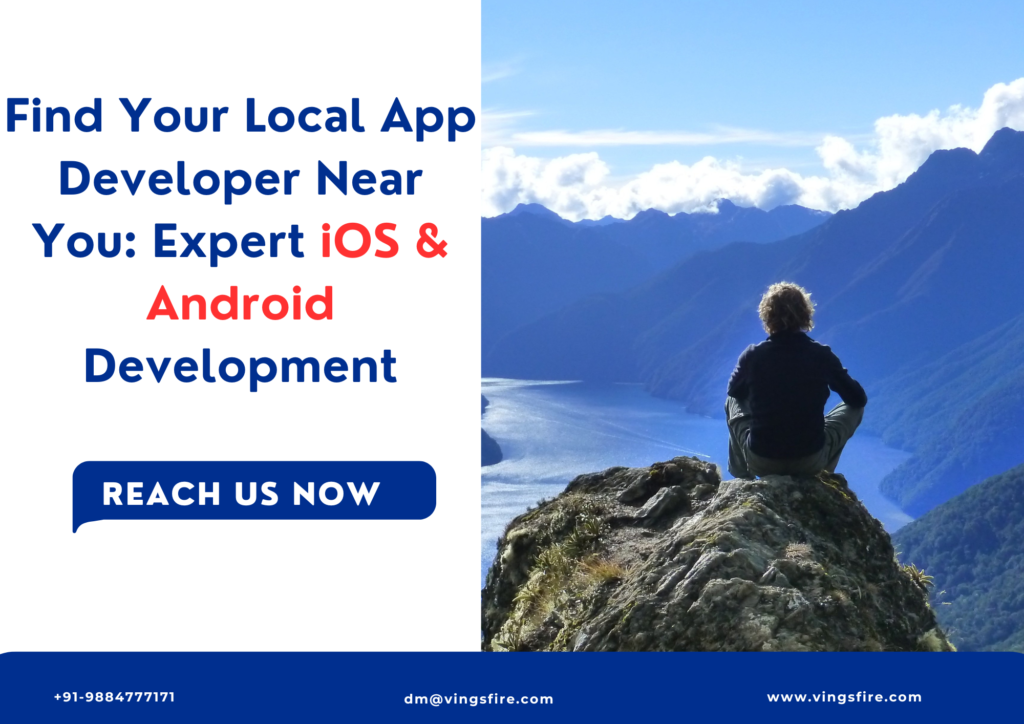In the rapidly evolving landscape of mobile app development, choosing the right software is crucial for success. As we step into 2024, developers are faced with a plethora of options, each claiming to be the best. In this guide, we will delve into the top mobile app development software, exploring their features, functionalities, and how they cater to the diverse needs of developers.
Learn More About Vingsfire:-
1.LINKEDIN
2.FACEBOOK
1.Flutter: Unleashing Cross-Platform Excellence
Flutter continues to dominate the mobile app development scene in 2024. Developed by Google, this open-source UI toolkit allows developers to create natively compiled applications for mobile, web, and desktop from a single codebase. Its hot-reload feature facilitates quick experimentation, while the rich set of customizable widgets simplifies the UI development process. Flutter’s ability to deliver stunning visuals across multiple platforms with minimal effort makes it a top choice for developers aiming for efficiency and consistency.
2.React Native: The Power of Facebook in Your Hands
Facebook’s React Native remains a formidable force in the mobile app development arena. With a strong developer community and continuous support from Facebook, React Native enables the creation of native-like experiences for both iOS and Android platforms. The component-based architecture and efficient development cycle make it a reliable choice for businesses seeking cost-effective and time-efficient solutions. The ability to reuse code across platforms adds to its appeal, reducing development time and effort.
3.Xamarin: Microsoft’s Cross-Platform Marvel
Backed by Microsoft, Xamarin allows developers to build cross-platform applications using C# and the .NET framework. Xamarin provides native-like performance, and its seamless integration with Visual Studio streamlines the development process. Developers can leverage shared codebases for Android and iOS platforms, minimizing duplication of effort. With Xamarin.Forms, creating a consistent user interface across platforms becomes more straightforward, making it an ideal choice for enterprises with diverse user bases.
4.Swift for iOS: Apple’s Native Elegance
For developers exclusively targeting the iOS ecosystem, Swift remains the language of choice. Developed by Apple, Swift is designed to be fast, secure, and expressive. With a focus on readability and ease of use, Swift enables developers to create powerful and efficient iOS applications. The continuous evolution of Swift, along with Apple’s commitment to providing cutting-edge tools, makes it an essential component of any iOS developer’s toolkit.
5.Kotlin for Android: A Modern Alternative
Kotlin has emerged as the preferred language for Android app development, officially supported by Google. Offering concise syntax, enhanced null safety, and seamless interoperability with existing Java codebases, Kotlin streamlines the development process. Its expressive nature and concise syntax contribute to improved developer productivity. As more developers make the shift to Kotlin, it stands as a testament to its efficiency and suitability for Android app development.
6.Adobe PhoneGap: Bridging the Web and Mobile
PhoneGap, now known as Apache Cordova, allows developers to build mobile applications using web technologies like HTML, CSS, and JavaScript. Adobe’s PhoneGap offers a bridge between web and mobile development, providing a straightforward way to create cross-platform applications. While it may not boast the performance of native solutions, its simplicity and wide accessibility make it a viable choice for certain projects, particularly those with limited budgets or time constraints.
Conclusion: Navigating the Mobile App Development Landscape in 2024
Choosing the right mobile app development software in 2024 requires a careful consideration of various factors, including project requirements, target platforms, and development team expertise. Flutter, React Native, Xamarin, Swift, Kotlin, and Adobe PhoneGap each offer unique advantages, catering to different needs within the diverse mobile app development landscape.
As you embark on your app development journey, assess your project’s specific requirements and objectives. The best choice of software will depend on factors such as platform preference, development speed, code maintainability, and the desired user experience. Stay updated with the latest trends and advancements in the ever-evolving field of mobile app development to ensure your projects align with industry best practices and deliver exceptional results.













